|
|
|
|
|
|
|
|
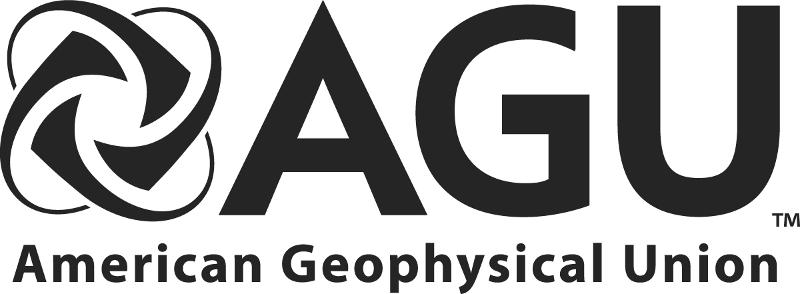 American Geophysical Union Fall Meeting, December 12-16, 2016 (San Francisco, CA USA). Anticipating about 25,000 attendees, AGU's Fall Meeting will again be the largest Earth and space science meeting in the world. 2016 marks the meeting's 49th year and there will be approximately 20,000 oral and poster presentations in over 1,700 sessions, many of which will focus specifically on Arctic science. Among the highlights, the "2016 Arctic Report" will again be released, IARPC will hold a "Town Hall Meeting" on Thursday, Dec. 15th, from 12:30 to 1:30 pm in Moscone West Room 2003, and NASA will have a Town Hall on Operation IceBridge on Dec. 14th, in Moscone Room 202 from 12:30 to 1:30 pm. American Geophysical Union Fall Meeting, December 12-16, 2016 (San Francisco, CA USA). Anticipating about 25,000 attendees, AGU's Fall Meeting will again be the largest Earth and space science meeting in the world. 2016 marks the meeting's 49th year and there will be approximately 20,000 oral and poster presentations in over 1,700 sessions, many of which will focus specifically on Arctic science. Among the highlights, the "2016 Arctic Report" will again be released, IARPC will hold a "Town Hall Meeting" on Thursday, Dec. 15th, from 12:30 to 1:30 pm in Moscone West Room 2003, and NASA will have a Town Hall on Operation IceBridge on Dec. 14th, in Moscone Room 202 from 12:30 to 1:30 pm.
Today's Congressional Action:
The House and Senate are not in session.
|
Media
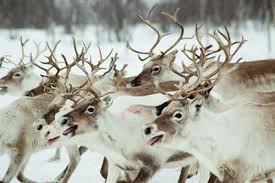 Reindeer Shrink as Climate Change in Arctic Puts Their Food on Ice. Reindeer Shrink as Climate Change in Arctic Puts Their Food on Ice. Reindeer are shrinking on an Arctic island near the north pole as a result of climate change that has curbed the amount of winter food available to the animals, scientists said on Monday. The average weight of adult reindeer on Svalbard, a chain of islands north of Norway, fell from 55kg (121lb) to 48kg (106lb) in the 1990s as part of sweeping changes to Arctic life while temperatures rose, they said. The Guardian
Trump Nominates Kelly as DHS Chief. President-elect Donald Trump early Monday announced his intention to nominate retired Marine Corps Gen. John Kelly to lead the Department of Homeland Security. "Gen. John Kelly's decades of military service and deep commitment to fighting the threat of terrorism inside our borders makes him the ideal choice to serve as our Secretary of the Department of Homeland Security," Trump said in a statement. The Hill 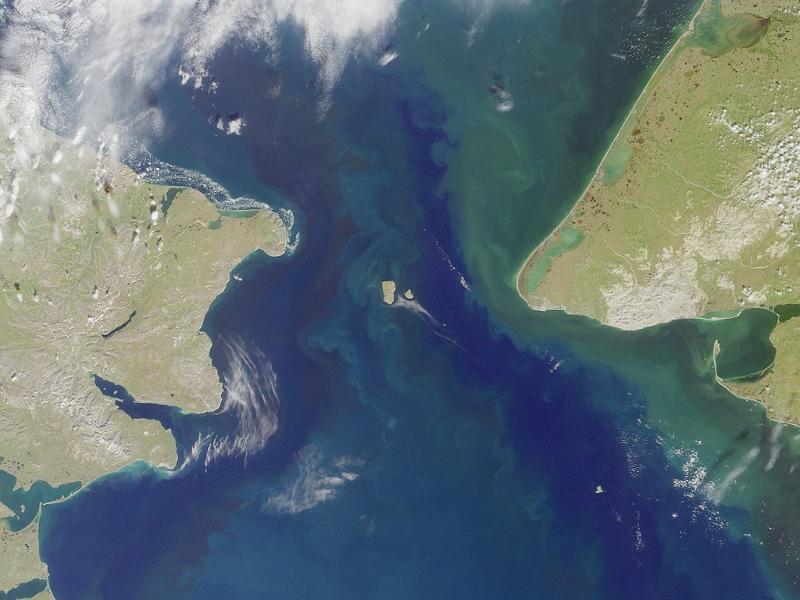 Obama Draws Fury and Joy with Bering Sea Protection. Obama Draws Fury and Joy with Bering Sea Protection. President Obama today issued an executive order creating the "Northern Bering Sea Climate Resilience Area." The area covers more than 100 thousand square miles off Alaska's western coast, from the mouth of the Kuskokwim to just north of the Bering Strait. The president's order withdraws about 40 percent of the area from offshore oil and gas leasing. It also reaffirms an existing ban in the area on bottom-trawl fishing. Alaska Public Radio Sexist Remarks at Research Gala Shock and Disturb Northern Scientists. Sexist, inappropriate comments made during an ArcticNet gala celebration in Winnipeg Dec. 7 has prompted two open letters denouncing the speech and a call for ArcticNet's board of directors to address long-standing issues of sexism in the organization, and in northern research. ArcticNet, an elite network of publicly funded researchers and academics across the country who work in all manner of natural, human health and social sciences, is holding its a nnual meeting in Winnipeg this week to showcase work being done by veterans in the field as well as up-and-coming young researchers. Nunatsiaq Online Pribilof Scientists Work to Bring Back Decimated Blue King Crab Population. "They're almost like unicorns in the trawl survey now," Lauren Divine said. Divine is the co-director of St. Paul's Environmental Conservation Office. "There are very, very, very few being found. When you find one it's kind of unreal. It's kind of surreal." As the blue king crab population goes down, fishermen on St. Paul Island face more restrictions to reduce bycatch. When those crab are caught accidentally, that can lower fishing quotas even more. Those precautions are intended to protect crab and help the species rebound. Alaska Public Radio $1.5M Awarded to Projects in the Arctic. Three groups will split a prize of $1.5 million to run projects to help strengthen Canada's north. Qarmaapik House, the te(a)ch project, and SmartICE were selected on Thursday night as the Laureates of the fifth annual Arctic Inspiration Prize at ArcticNet's 12th annual scientific meeting held in Winnipeg this week. Qarmaapik House, which helps parents look after their children by using a prevention-based approach, is getting $700,000 to expand its program. Winnipeg Free Press As Temperatures Rise, Oil Industry Adapts to Sustain Alaska Ice-Road Seasons. Alaska's North Slope oil industry is battling back as Earth has warmed, adopting new techniques to allow operators to start building ice roads as early as they did in the cooler 1970s to move the drilling rigs and people needed for winter oil exploration. The result is ice-road construction seasons that have become reliably longer in recent years - and an unmistakable irony, with the oil industry working to expand the winter season for finding the petroleum that contributes to more climate-warming, greenhouse-gas emissions that shrink the season. Alaska Dispatch News 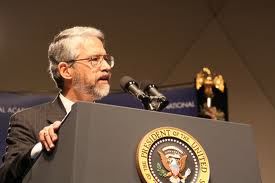 Obama Science Adviser Warns Against Retreats on Climate, Science. Obama Science Adviser Warns Against Retreats on Climate, Science. White House science adviser John Holdren can't predict what the incoming Trump administration will do about science and environmental issues, including climate change, after the inauguration on 20 January, but he says that scientists, environmentalists, and others should be prepared to push back with their concerns. In a wide-ranging exclusive interview with Eos on Monday, Holdren also defended the Obama administration's initiatives on climate change and other science efforts, warned against pulling out of the Paris climate accord, and denounced suggestions to move Earth observations out of NASA. EOS Natives' Firsthand Knowledge Informs Study of Climate-Change Impact on Subsistence Hunting. Wildlife biologist Todd Brinkman says Inupiat and Gwich'in peoples have helped him and other researchers understand new climate change-related problems that subsistence hunters are encountering while trying to get out to remote areas in northern Alaska where they can harvest fish and wildlife. "You're seeing changes to the trail system, whether it be from permafrost thawing, or more frequent wildfires coming through the area," he said. KUAC
|
Legislative Action.gif)
No Arctic legislation was formally considered Friday.
|
|
Future Events
IARPC Town Hall AGU on the next 5-Years of Federally Funded Arctic Research, December 15, 2016 (San Francisco, CA USA). Conveners will provide an overview of the science and policy drivers, scope, and research goals of the Arctic Research Plan FY2017-2021. The Research Plan describes Arctic research priorities of the Federal Government that are expected to benefit from interagency collaboration during the period FY2017-2021. The town hall will provide an opportunity for the research community to learn about the Research Plan and how they can engage in its implementation. The Plan, drafted by and approved by IARPC, is a product of the National Science and Technology Council of the White House Office of Science and Technology Policy. Additionally, the US Arctic Research Commission will describe the USARC Goals and Objectives for Arctic Research 2017-2018.
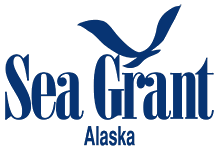 Symposium on Climate Displacement, Migration, and Relocation, December 13-14, 2016 (Honolulu, HI USA). The White House Council on Environmental Quality, NOAA's Office of Coastal Management, the Hawaii and Alaska Sea Grant College Programs, the William S. Richardson School of Law at the University of Hawai'i Manoa, and the Pacific Islands Climate Science Center are convening this symposium. The event will bring together stakeholders, policy makers, legal experts, academics, and others to discuss legal and policy options to assist individuals and communities considering relocation as an adaptation response to climate change, in both the domestic and international contexts. Symposium on Climate Displacement, Migration, and Relocation, December 13-14, 2016 (Honolulu, HI USA). The White House Council on Environmental Quality, NOAA's Office of Coastal Management, the Hawaii and Alaska Sea Grant College Programs, the William S. Richardson School of Law at the University of Hawai'i Manoa, and the Pacific Islands Climate Science Center are convening this symposium. The event will bring together stakeholders, policy makers, legal experts, academics, and others to discuss legal and policy options to assist individuals and communities considering relocation as an adaptation response to climate change, in both the domestic and international contexts.
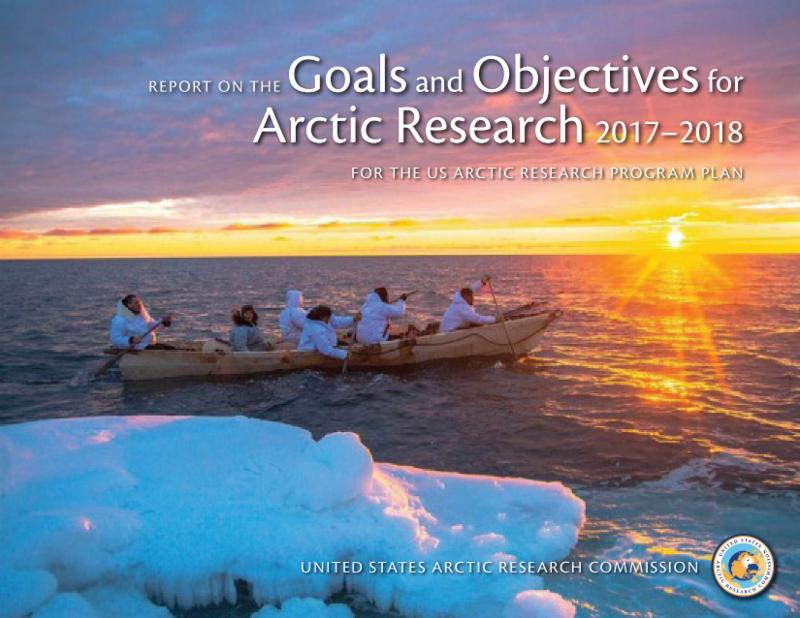
The USARC will release its biennial "Report on Goals and Objectives for Arctic Research"
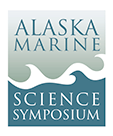 Alaska Marine Science Symposium, January 23-27, 2017 (Anchorage, AK USA). Alaska Marine Science Symposium, January 23-27, 2017 (Anchorage, AK USA). The annual Alaska Marine Science Symposium (AMSS) is Alaska's premier marine research conference. It brings together roughly 800 scientists, educators, resource managers, students, and interested public to discuss marine research being conducted in Alaskan waters. Research will be presented by geographic theme, including the Gulf of Alaska, Bering Sea & Aleutian Islands, and the Arctic. Topic areas will include ocean physics, fishes and invertebrates, seabirds, marine mammals, local traditional knowledge and more. Keynote presentations will be held Monday, January 23rd; Gulf of Alaska presentations will be on Tuesday, Bering Sea/Aleutian Islands on Wednesday, followed by the Arctic on Thursday. USARC will also do a "State of Alaska release" of its 2017-2018 "Goals Report" at this symposium. A prior release will be at the AGU meeting, described above, on December 15th.
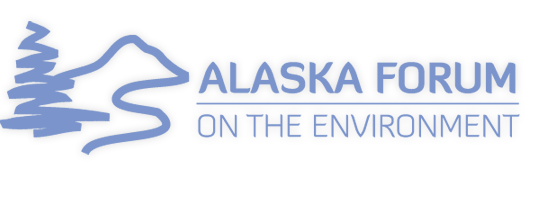 Alaska Forum on the Environment, February 6-10, 2017 (Anchorage, AK USA). Alaska Forum on the Environment, February 6-10, 2017 (Anchorage, AK USA). This statewide gathering of environmental professionals, community leaders, Alaskan youth, conservationists, biologists and community elders will be holding its 19th meeting to continue providing a strong educational foundation for all Alaskans and a unique opportunity to interact with others on environmental issues and challenges. As many as 1,800 people are expected to attend AFE this years meeting.
6th Annual Fletcher Arctic Conference, February 17-18, 2017 (Medford, MA USA). Fletcher Arctic VI, a TEDx-style event, will showcase the ideas, stories, and initiatives of people who live and work in the Arctic. The conference will bring together inspiring leaders, innovative business people, expert scientists, and artists from the pan-Arctic region. Building on The Fletcher School's interdisciplinary approach, Fletcher Arctic VI will be a forum to engage in conversation and spark open and constructive debate between speakers and participants, providing deep insights into this unique and rapidly changing region.
IV International Forum, March 2017 (Arkhangelsk, Russian Federation) Arkhangelsk will host the Forum. The Forum will be titled Human in the Arctic and will be aimed at putting together joint efforts of the international community to promote effective development of the Arctic region as a territory for comfort life, work and leisure. The Forum will be attended by government officials, representatives of international organizations and prominent business communities, centers for political studies, Polar researchers and members of the international Arctic expeditions, foreign political scientists and economists, Russian and foreign journalists from leading international media organizations. The Forum will be attended by the President of the Russian Federation, Mr. Vladimir Putin. Additional information will be announced here.
- The Arctic Cryosphere
- Pollution in the Arctic
- Human Health Aspects of Pollution and Climate Change
- Global and Arctic Systems Feedback Mechanisms
- Resilience within Arctic Ecosystems
- Science and Plicy Making
- Socio-Economic Drivers and Impacts of Arctic Change
Organizers announce a call for abstracts which are due by December 2, 2016. The event is organized by the Arctic Monitoring and Assessment Program (AMAP).
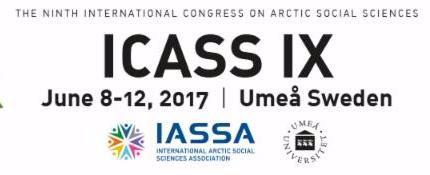 Ninth International Congress of Arctic Social Sciences: People and Places (ICASS IX), June 8-12, 2017 (Umeå, Sweden).ICASS IX's theme is People & Place. Research on social sciences and humanities have a great responsibility to address the challenges for sustainable development in the Arctic, with a specific focus on the many different parts of the Arctic and the people that live there. The multiple Arctics have lately been addressed by many policy makers and researchers. The purpose is often to counteract the stereotypic understanding of the Arctic too often represented by icebergs and polar bears. A focus on people and place highlights the many variances across the region in terms of climate, political systems, demography, infrastructure, history, languages, legal systems, land and water resources etc. Ninth International Congress of Arctic Social Sciences: People and Places (ICASS IX), June 8-12, 2017 (Umeå, Sweden).ICASS IX's theme is People & Place. Research on social sciences and humanities have a great responsibility to address the challenges for sustainable development in the Arctic, with a specific focus on the many different parts of the Arctic and the people that live there. The multiple Arctics have lately been addressed by many policy makers and researchers. The purpose is often to counteract the stereotypic understanding of the Arctic too often represented by icebergs and polar bears. A focus on people and place highlights the many variances across the region in terms of climate, political systems, demography, infrastructure, history, languages, legal systems, land and water resources etc.
The 2nd Asian Conference on Permafrost, July 2-6, 2017 (Sapporo, Japan). Delegates will participate in state-of-the-art oral and poster presentations in the modern city of Sapporo (host of the 1972 Winter Olympics). Field trips will visit marginal and extrazonal mountain permafrost sites that support unique geo-eco-hydrological features. All aspects of frozen ground research will be covered, from needle ice to deep permafrost, from frozen ground engineering in cities to permafrost on volcanoes, and from links between frozen ground and ancient cultures to present-day outreach. Plan now to enjoy science and engineering, excellent food, and unique field trips in Sapporo.
7th Symposium on the Impacts of an Ice-Diminishing Arctic on Naval and Maritime Operations, July 18-20, 2017, Naval Heritage Center, Washington, DC.
.
- Small and off-grid community energy solutions
- Oil and gas development
- Renewable energy
- Regulation and Financing
- Transportation and transmission
The AES is a multi-disciplinary event expected to draw several hundred industry officials, scientists, academics, policy makers, energy professionals and community leaders together to collaborate and share leading approaches on Arctic energy issues.
 Polar Law Symposium 2017 and Rovaniemi Arctic Spirit, November 13-16, 2017 (Rovaniemi, Finland). The purpose of the Polar Law Symposium is to examine, in detail, the implications of the challenges faced by the Polar Regions for international law and policy and to make recommendations on appropriate actions by states, policy makers and other international actors to respond to these emerging and re-emerging challenges. The Rovaniemi Arctic Spirit Polar Law Symposium 2017 and Rovaniemi Arctic Spirit, November 13-16, 2017 (Rovaniemi, Finland). The purpose of the Polar Law Symposium is to examine, in detail, the implications of the challenges faced by the Polar Regions for international law and policy and to make recommendations on appropriate actions by states, policy makers and other international actors to respond to these emerging and re-emerging challenges. The Rovaniemi Arctic Spirit
Conference is integrated with the Polar Law Symposium, which will be organized by the Northern Institute for Environmental and Minority Law at the Arctic Center of the University of Lapland.
 POLAR 2018, June 15-27, 2018 (Davos, Switzerland). POLAR2018 is a joint event from the Scientific Committee on Antarctic Research (SCAR) and the International Arctic Science Committee (IASC). The SCAR meetings, the ASSW and the Open Science Conference will be hosted by the Swiss Federal Institute for Forest, Snow and Landscape Research WSL under the patronage of the Swiss Committee on Polar and High Altitude Research. The WSL Institute for Snow and Avalanche Research SLF is organizing POLAR2018. POLAR 2018, June 15-27, 2018 (Davos, Switzerland). POLAR2018 is a joint event from the Scientific Committee on Antarctic Research (SCAR) and the International Arctic Science Committee (IASC). The SCAR meetings, the ASSW and the Open Science Conference will be hosted by the Swiss Federal Institute for Forest, Snow and Landscape Research WSL under the patronage of the Swiss Committee on Polar and High Altitude Research. The WSL Institute for Snow and Avalanche Research SLF is organizing POLAR2018.
|
|

  
4350 N. Fairfax Drive, Suite 510
Arlington, VA 22203, USA
External links in this publication, and on the USARC's World Wide Web site ( www.arctic.gov) do not constitute endorsement by the US Arctic Research Commission of external Web sites or the information, products or services contained therein. For other than authorized activities, the USARC does not exercise any editorial control over the information you may find at these locations. These links are provided consistent with the stated purpose of this newsletter and the USARC Web site.
|
|
|
|
|
|
|
|
|